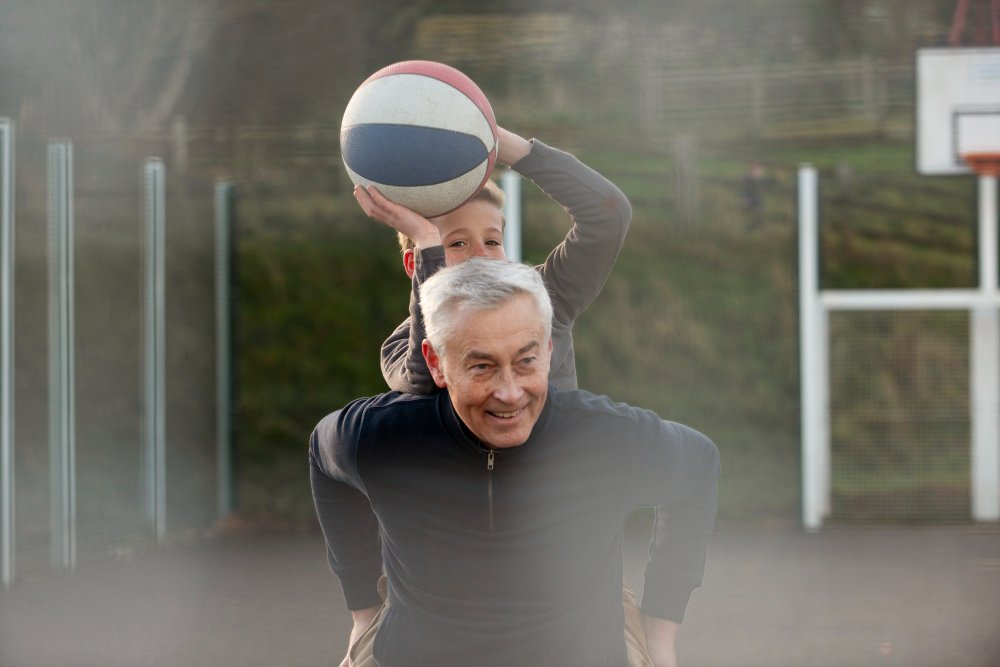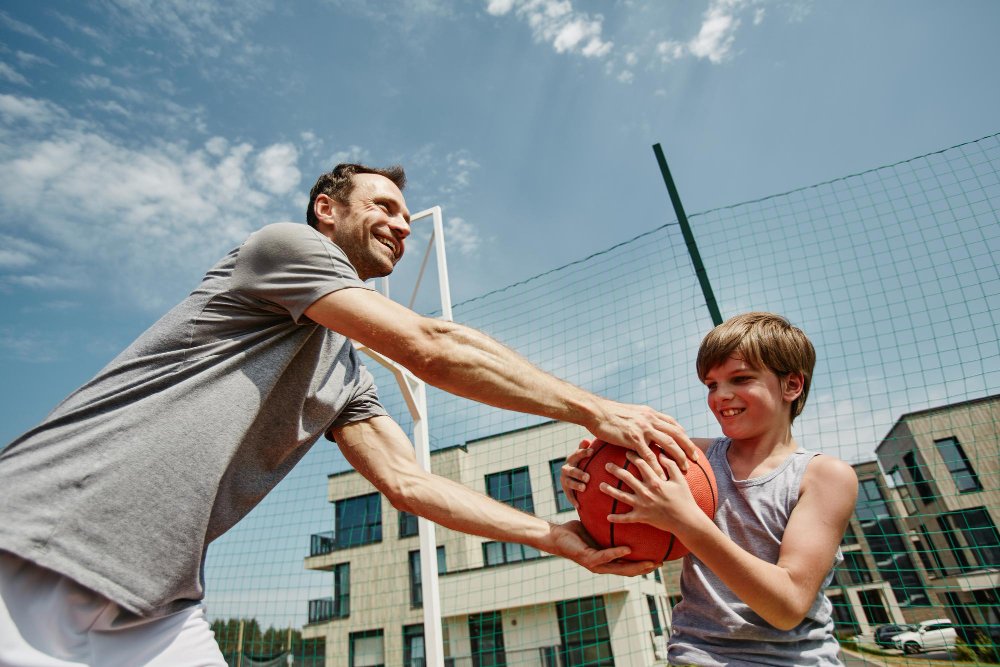The Benefits of Playing Sports:
Sports have always been an integral part of human civilization, offering recreation, competition, and personal growth. Engaging in sports is not only a source of enjoyment but also a powerful way to maintain physical and mental well-being. The benefits of playing sports extend far beyond physical fitness. Engaging in sports is a powerful way to improve mental health, build social connections, and develop essential life skills. Whether you’re a professional athlete or a weekend enthusiast, the advantages of participating in sports are undeniable. From boosting self-esteem to fostering teamwork, sports play a vital role in shaping a well-rounded individual. In this article, we will explore the multifaceted benefits of playing sports, highlighting their importance in our daily lives.
Importance of Playing Sports:
Playing sports is crucial for overall development as it enhances physical health, mental well-being, and social skills. It instills discipline, teamwork, and leadership while reducing stress and anxiety. Sports also improve concentration, decision-making, and problem-solving abilities, which benefit academic and professional life. Furthermore, regular participation in sports helps prevent chronic diseases, promotes a healthy lifestyle, and increases longevity. Beyond individual benefits, sports unite communities, fostering inclusivity and cultural exchange. Whether for recreation or competition, engaging in sports contributes to a well-balanced, fulfilling life.

1. Physical Health Benefits of Playing Sports
1.1 Improved Cardiovascular Health
One of the most significant benefits of playing sports is the improvement in cardiovascular health. Activities like soccer, basketball, and tennis increase heart rate, strengthening the heart muscle and improving blood circulation. Regular participation in sports reduces the risk of heart diseases, stroke, and high blood pressure.
1.2 Enhanced Muscle Strength and Flexibility
Sports involve a wide range of movements that engage different muscle groups. Whether it’s running, jumping, or throwing, these activities help build muscle strength and improve flexibility. Over time, this leads to better posture, reduced risk of injury, and increased overall physical endurance.
1.3 Weight Management and Obesity Prevention
In an era where sedentary lifestyles are becoming the norm, sports provide an effective way to combat obesity. Physical activities burn calories, helping individuals maintain a healthy weight. Sports like swimming, cycling, and running are particularly effective for weight management.
2. Mental Health Benefits of Playing Sports
2.1 Reduced Stress and Anxiety
The benefits of playing sports are not limited to physical health; they also have a profound impact on mental well-being. Physical activity triggers the release of endorphins, also known as “feel-good” hormones, which help reduce stress and anxiety. Sports provide an outlet for releasing pent-up emotions, promoting relaxation and mental clarity.
2.2 Improved Mood and Emotional Stability
Engaging in sports can significantly improve mood and emotional stability. The sense of accomplishment after a game or practice session boosts self-esteem and confidence. Additionally, the social aspect of sports fosters a sense of belonging, reducing feelings of loneliness and depression.
2.3 Enhanced Cognitive Function
Sports require quick thinking, strategy, and decision-making, which enhance cognitive function. Regular participation in sports has been linked to improved memory, concentration, and problem-solving skills. This is particularly beneficial for children and adolescents, as it supports academic performance.

3. Social Benefits of Playing Sports
3.1 Building Strong Relationships
One of the most underrated benefits of playing sports is the opportunity to build strong relationships. Team sports, in particular, encourage collaboration and communication, fostering friendships that often extend beyond the playing field.
3.2 Developing Teamwork and Leadership Skills
Sports teach valuable life skills such as teamwork and leadership. Being part of a team requires individuals to work together towards a common goal, promoting cooperation and mutual respect. Captains and team leaders also learn how to motivate and guide their teammates, skills that are transferable to professional and personal life.
3.3 Promoting Inclusivity and Diversity
Sports bring people from different backgrounds together, promoting inclusivity and diversity. Whether it’s a local community league or an international tournament, sports provide a platform for individuals to connect and celebrate their shared passion.
4. Educational Benefits of Playing Sports
4.1 Improved Academic Performance
Research has shown that understudies who take part in sports frequently perform better scholastically. The discipline, time management, and focus required in sports translate into better study habits and improved grades.
4.2 Learning Time Management
Offsetting sports with scholastics shows understudies how to really deal with their time. This skill is invaluable in adulthood, where juggling multiple responsibilities becomes the norm.
4.3 Developing a Growth Mindset
Sports teach individuals to embrace challenges and learn from failures. This growth mindset is essential for personal and professional development, encouraging continuous improvement and resilience.

5. Emotional and Psychological Benefits of Playing Sports
5.1 Building Self-Confidence
The benefits of playing sports include a significant boost in self-confidence. Achieving personal goals, mastering new skills, and receiving recognition from peers and coaches contribute to a positive self-image.
5.2 Coping with Failure and Adversity
Sports provide a safe environment to experience failure and learn how to cope with it. Whether it’s losing a game or facing a tough opponent, athletes develop resilience and the ability to bounce back from setbacks.
5.3 Enhancing Emotional Intelligence
Playing sports requires understanding and managing emotions, both your own and those of others. This enhances emotional intelligence, which is crucial for building healthy relationships and navigating social situations.
6. Long-Term Benefits of Playing Sports
6.1 Healthy Aging
The benefits of playing sports extend into old age. Regular physical activity helps maintain mobility, balance, and strength, reducing the risk of age-related diseases such as osteoporosis and arthritis. Engaging in low-impact sports like swimming or yoga can be particularly beneficial for seniors, as they provide gentle exercise that supports joint health and flexibility.
6.2 Lifelong Habits
Engaging in sports from a young age instills a habit of regular exercise, which often continues into adulthood. This contributes to a healthier lifestyle and a reduced risk of chronic illnesses such as diabetes, hypertension, and obesity. Moreover, the discipline and routine developed through sports can translate into other areas of life, such as maintaining a balanced diet and prioritizing self-care.
6.3 Career Opportunities
For some, sports open doors to career opportunities in coaching, sports management, or even professional athletics. The skills learned through sports, such as discipline, teamwork, and leadership, are highly valued in the workplace. Additionally, former athletes often find success in fields that require strategic thinking, resilience, and the ability to perform under pressure.

7. Benefits of Playing Sports for Children and Adolescents
7.1 Physical Development
For children and adolescents, sports are crucial for physical development. They help build strong bones and muscles, improve coordination, and promote overall growth. Activities like soccer, gymnastics, and swimming are excellent for developing motor skills and physical fitness.
7.2 Social Skills Development
Sports provide a platform for children to interact with their peers, developing social skills such as communication, cooperation, and conflict resolution. Being part of a team teaches them how to work collaboratively and respect others’ perspectives.
7.3 Building a Sense of Responsibility
Being part of a team teaches children the importance of responsibility. They learn to attend practices, follow rules, and contribute to the team’s success. This sense of accountability can carry over into other areas of their lives, such as school and family responsibilities.
8. Benefits of Playing Sports for Adults
8.1 Stress Relief
For adults, sports serve as an excellent stress reliever. After a long day at work, engaging in physical activity helps clear the mind and rejuvenate the body. Activities like running, cycling, or playing a game of basketball can provide a mental escape from daily pressures.
8.2 Networking Opportunities
Adult sports leagues and clubs provide networking opportunities, allowing individuals to connect with like-minded people and expand their social and professional circles. Whether it’s a local soccer league or a corporate softball team, sports can be a great way to build relationships outside of work.
8.3 Maintaining Physical Fitness
As adults age, maintaining physical fitness becomes increasingly important. Sports offer a fun and engaging way to stay active and healthy. Regular participation in sports helps adults maintain a healthy weight, improve cardiovascular health, and reduce the risk of chronic diseases.

Conclusion:
The benefits of playing sports are vast and multifaceted, impacting physical, mental, and social well-being. From improving cardiovascular health to building self-confidence, sports play a crucial role in enhancing the quality of life. Whether you’re a child, adolescent, or adult, incorporating sports into your routine can lead to a healthier, happier, and more fulfilling life. The importance of playing sports cannot be overstated, as they provide a foundation for personal growth and lifelong success. So, lace up your sneakers, grab your gear, and experience the transformative benefits of playing sports today!
Read More: The Ultimate Guide to Investment Risk Management for Investors
Frequently Asked Questions (FAQs)
1. What are the main benefits of playing sports?
The benefits of playing sports include better physical fitness, improved mental health, and enhanced social skills. It helps build discipline, teamwork, and resilience while also reducing stress. Regular participation in sports contributes to a healthier and more active lifestyle.
2. How do sports improve mental health?
Engaging in sports releases endorphins, which help reduce stress, anxiety, and depression. It also enhances cognitive functions such as memory, focus, and problem-solving skills. Playing sports provides a sense of achievement and boosts self-confidence.
3. Can playing sports help in weight management?
Yes, sports help burn calories, boost metabolism, and regulate body weight effectively. Activities like running, swimming, and football improve cardiovascular health and prevent obesity. A combination of regular sports and a balanced diet supports a healthy weight.
4. How do sports promote teamwork and leadership?
Team sports require cooperation, communication, and problem-solving, fostering essential teamwork skills. Players learn to support one another, develop leadership qualities, and make strategic decisions under pressure. These skills are beneficial in both personal and professional life.
5. What are the long-term health benefits of playing sports?
Regular sports participation lowers the risk of chronic diseases such as heart disease, diabetes, and osteoporosis. It strengthens muscles and bones, improves flexibility, and enhances overall mobility. Playing sports consistently leads to a longer, healthier, and more fulfilling life.







